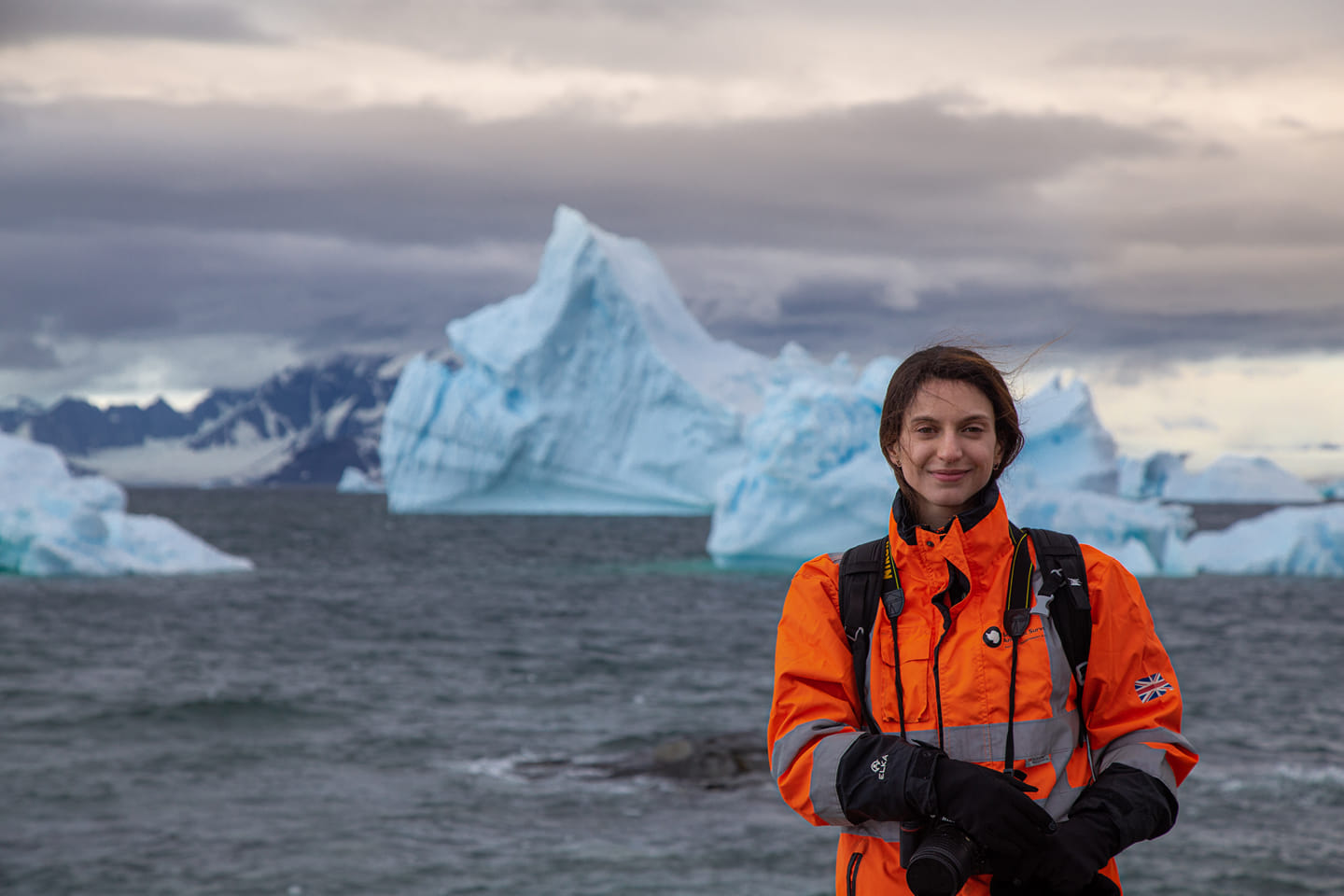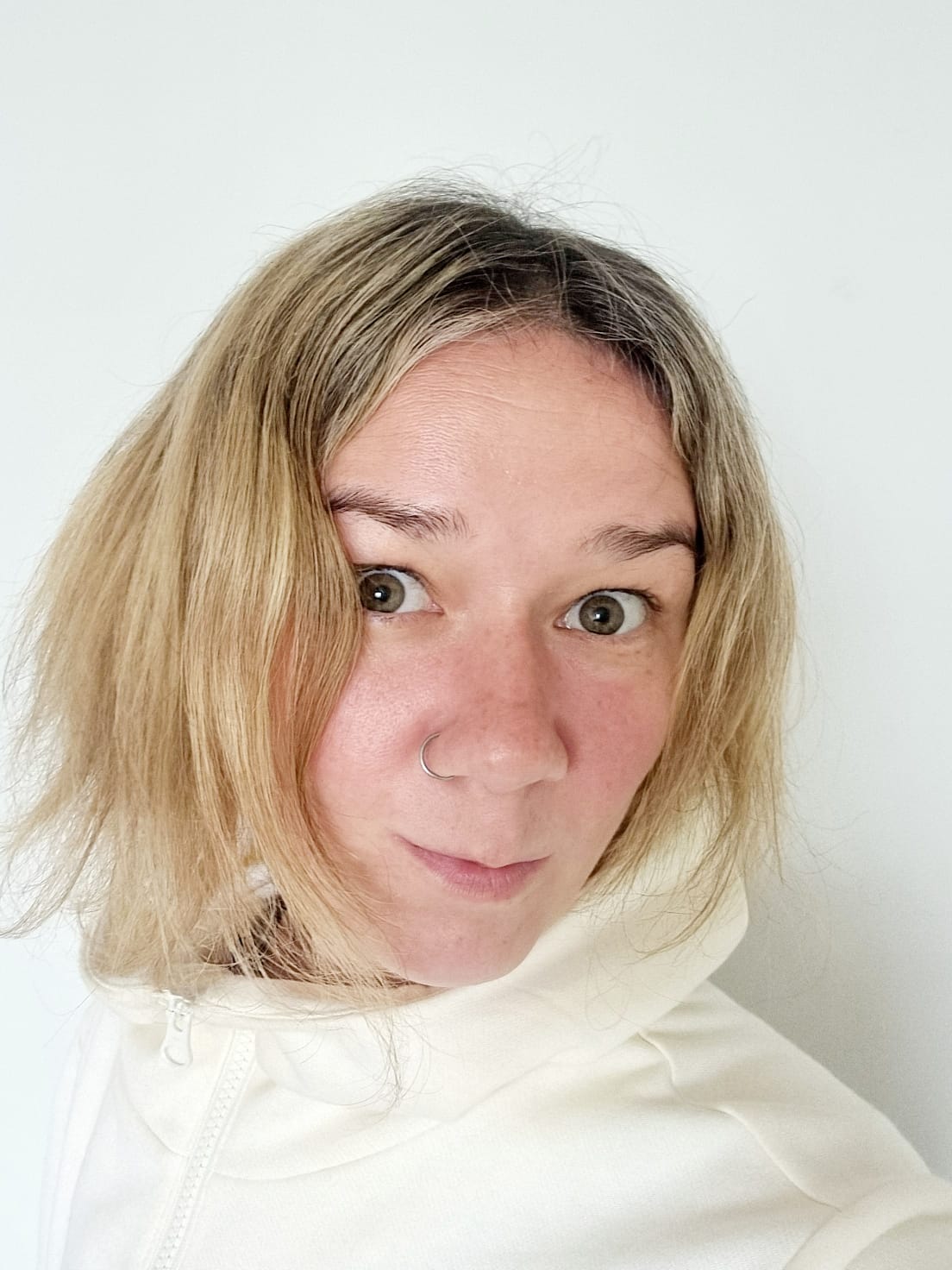-
Alice Guzzi - APECS ExCom 2025-2026
 Italy
ItalyCiao! I’m Alice, an Italian Marine Ecologist based in Genoa.I am currently a Research Fellow at the University of Genoa, working within the Italian National Antarctic Museum (MNA, Genoa section). My research focuses on the conservation and biodiversity of Antarctic marine invertebrates, with a strong specialization in DNA barcoding and reverse taxonomy, particularly applied to Antarctic echinoderms. This work has contributed to the revision and, in some cases, the creation of the echinoderm species checklist for Terra Nova Bay. At present, I am focusing on non-destructive methodologies, especially photogrammetry, to develop standardized baseline data and long-term monitoring systems for Antarctic benthic communities. Together with two friends and colleagues, I founded a citizen science project called St[r]anding, aimed at monitoring and collecting data on beached marine fauna. Since 2025, I have also been a lecturer for the Laboratory of Archeozoology, a university course designed to provide students in the Cultural Heritage Conservation program with practical tools to identify and classify key animal species studied in archeozoology, with a focus on their use in common archaeological contexts. In 2020, together with four other Italian colleagues, we re-establish APECS Italy after a period of inactivity of the former national board. This experience was incredibly enriching, as it challenged me in new ways and allowed me to develop valuable skills that contributed to the success of the initiative. Since 2024, I’ve been serving as a National Committee Coordinator, this role has enriched my experience within APECS and deepened my appreciation for international collaboration and open communication. Beyond my scientific work, I have a strong interest in the history of polar exploration and a deep passion for botany, which I pursue through botanical watercolor painting and by turning my home into a small personal urban jungle.
-
Anastasia Deyko- APECS ExCom 2025-2026
 Peru
PeruAfter a decade of research in the Barents and Lapland regions, my experience with Indigenous North has profoundly reshaped my multicultural perspective. This journey can be summed up as “So close, yet so far.”
“So close” reflects my observation of the life philosophy shared by those living beyond the polar circles—coexisting with and adapting to nature, enduring the harsh winters, and making the most of every moment during the short summers. These shared experiences are the gentle unifying threads among people from the Polar regions, rooted in ancient knowledge that transcends language, borders, and rapid climate and political changes. My core interest lies in uniting scientists and enthusiasts across various fields of study.
By “So far,” I refer not only to the sparse population density and vast, often inaccessible territories with limited transportation but also, more significantly, to the bureaucratic, economic, and political barriers that have eroded the centuries-old network of human values.
Monitoring international activity in the Polar regions, I see substantial potential for collaboration and achieving a synergy between government institutions, independent scientists, and volunteer initiatives. My goal is to bridge the gaps and identify more common ground between cultural, political, and social studies in these territories. I aim to build stronger connections between established scientific institutions and emerging initiatives.
Having devoted five years to the APECS Council and Executive positions, I'm eager to share my experience in social studies with early-career researchers, international organizations, and educational institutions. -
Sebastian Maria Karl Heinrich Kopf - APECS ExCom 2025-2026
Norway
Sebastian Maria Karl Heinrich Kopf is Advisor at the Norwegian Institute for Water Research (NIVA) in Oslo, Norway, working at the intersection of ocean law, climate security, and ecosystem restoration. With an LL.M. in Law of the Sea from UiT – The Arctic University of Tromsø and a background in political science and environmental policy, his work bridges science-policy integration and stakeholder engagement at the North and South Poles, with special emphasis on the Arctic.
Sebastian has co-founded a marine sustainability initiative, led education and outreach programmes for more than 3,000 participants, and contributes to EU Mission Ocean projects focused on restoring marine and coastal ecosystems. His professional experience spans UN strategic sustainability, strategic foresight, and marine biodiversity governance, supporting long-term, interdisciplinary approaches to ocean challenges.
Within the Association of Polar Early Career Scientists, Sebastian currently serves on the Executive Committee. He is committed to fostering equity and inclusion in polar science, mentoring the next generation, and strengthening intergenerational dialogue. His interests include polar diplomacy, marine restoration, Indigenous rights, and advancing youth participation in global science-policy processes.
-
Sophie Dupont - APECS ExCom 2025-2026
France
Bonjour ! I am a French ecophysiologist working on the impact of anthropogenic activities on vertebrates. Specifically, I am interested in the effects of human-associated abiotic and biotic environmental constraints on health biomarkers, such as telomere length and hormone levels. I first encountered the polar environment during my PhD at the Centre d'Etudes Biologiques de Chizé. It was love at first sight, and I'm now involved in side research projects to further my understanding of how climate change is influencing the equilibrium of seabird populations. Sinc 2021, I have also been involved in associative activities with APECS-France. Among others, I created a Webinar called 'ArtPECS' to promote the polar environment through Art, interviewing French artists about their polar artwork. Six episodes are already available to stream for free, with more to come soon! Moreover, I have been the French NC Representative since 2023. Being part of the APECS ExCom would be a great opportunity for me to further develop the community of polar early career researchers, which I believe is crucial to acting efficiently in the current context of global warming.
-
Pratik Kad - APECS ExCom 2025-2026
Norway
I am a researcher based in Norway with a strong passion for climate science. I work as a postdoctoral researcher at NORCE and am an affiliated member of the Bjerknes Centre for Climate Research. My current research explores nature-based solutions for mitigating climate change, integrating ecological knowledge with atmospheric processes. My curiosity about the day-to-day variability of weather sparked a broader interest in understanding the climate system. I enjoy observing and tracking weather events, which often inspire my scientific questions and research directions.
My research interests include alpine climate, atmospheric science, physical oceanography, the cropsphere, and climate change. I am particularly drawn to the complex interactions between the atmosphere and ocean, as well as the unique meteorological processes occurring in mountainous regions. I use a combination of theory, observations, and numerical modeling to investigate these systems. I am also enthusiastic about exploring both past and future climate connection using cutting-edge tools to advance our understanding of climate dynamics.
As polar amplification intensifies and tipping points loom closer, I believe APECS holds a critical role to play in encouraging interdisciplinary collaboration and empowering ECRs. By co-producing actionable knowledge and science-informed solutions, we can better respond to the rapid and interconnected changes unfolding across polar systems.


